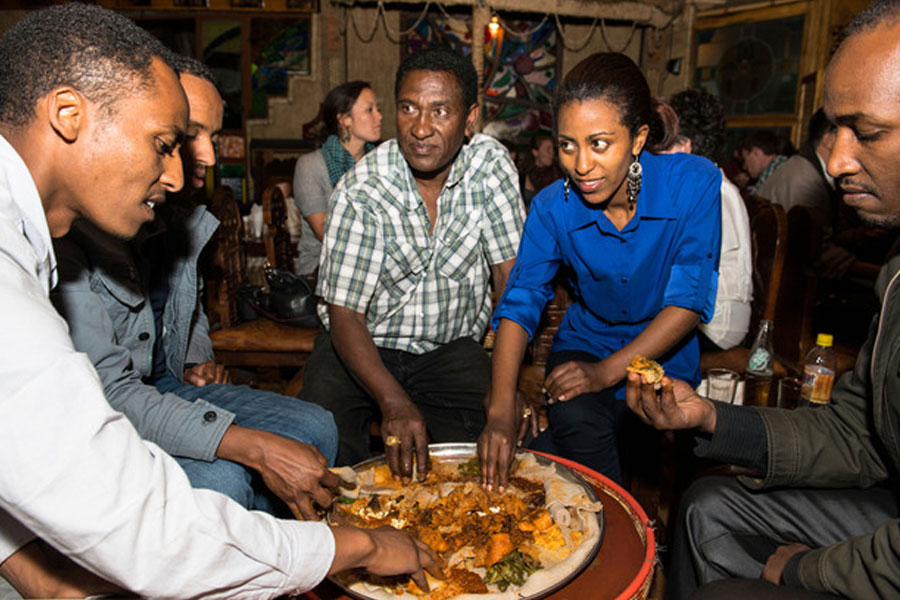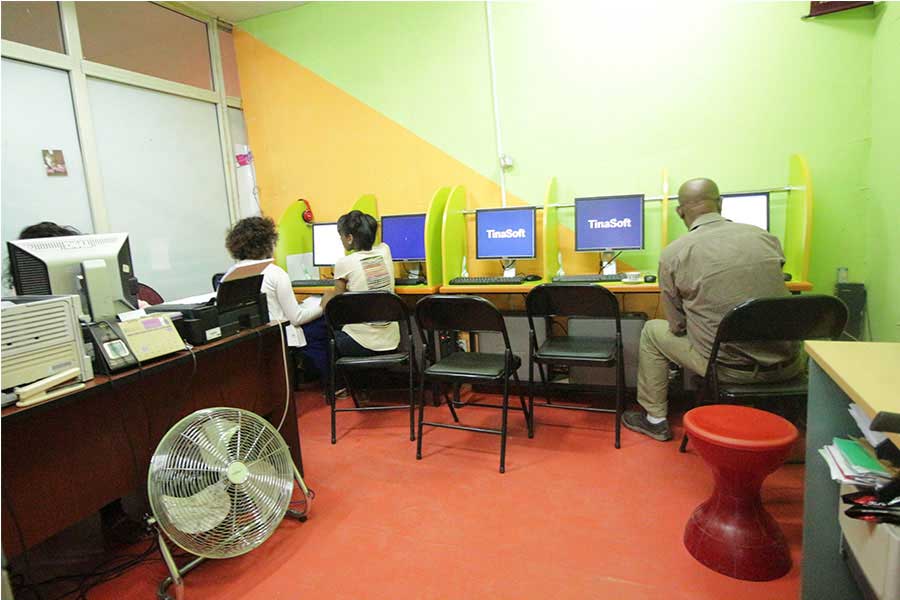
Life Matters | Nov 30,2024
Nov 4 , 2023
By Kidist Yidnekachew
In an era where information consumption is revolutionised by technology, the use of social media and how it shapes narratives is an issue that provokes thought.
What was once dominated by traditional media institutions, the information landscape has been democratised, giving marginalised groups and individuals a platform to share their stories directly with the world.
This shift has had a profound impact on social discourse, enabling us to challenge and change existing records and raise awareness of critical issues.
One such stroke is the "MeToo" movement which exploded all over social media. By encouraging survivors to share their stories online, the movement exposed the pervasive nature of harassment, sparking a global conversation and forcing institutions to confront this issue.
Similarly, the "Black Lives Matter" movement has used social media to amplify the injustice against black people and document police brutality.
Virtual community has also played its role in mobilising activists and raising awareness about crucial issues, such as mass incarceration and voter suppression.
In a quest to reshape identities, these social networks have paved the way for individuals to reclaim and forge new identities. People with disabilities and chronic health conditions have used these platforms to challenge negative stereotypes and raise awareness about their lived realities.
They have built communities where they can share their experiences and support each other in ways that were not possible before and share inspiring success stories.
In addition to its narrative-shifting power, the social platform has also emerged as a potent tool for activism. Social media boycotts are increasingly used to pressure businesses and organisations to change their policies and practices.
The ease of transmitting trending news to millions worldwide makes it difficult to ignore, which could lead to decreased sales, reputational damage, and policy changes.
Companies are pressured to stop using sweatshop labour, adopt more sustainable practices, and donate to charitable causes while being accountable for human rights abuses and environmental damage.
The wave has also come to Ethiopia with internet users hovering around 20.86 million people at the start of 2023 while its profound impact is yet to be seen. But with the road to digitisation exceeding by the year, its effect will be inevitable.
While social media has been used to promote positivity, it can also be exploited to spread misinformation.
A study by the University of Cambridge found that social media use leads to the formation of echo chambers as it often prioritises pre-existing beliefs and preferences of users when selecting content.
Reinforcing an existing opinion makes it difficult to consider alternative viewpoints.
As a result, individuals may become more entrenched in their ideologies and less open to engaging with diverse perspectives. Furthermore, the viral nature of misinformation can quickly amplify false narratives, creating a significant challenge for fact-checkers and contributing to the erosion of trust in traditional media sources.
It is essential to be critical of the information we encounter on social media and to verify it with other sources. Nevertheless, social media remains a powerful tool for shifting narratives and challenging the status quo.
The modern era empowered by digitisation enables us to stay updated on current events, engage in meaningful conversations, and form communities based on shared interests and causes.
We have broken geographical barriers and connected worldwide. By leveraging social media power, we can create a more connected and informed society.
PUBLISHED ON
Nov 04,2023 [ VOL
24 , NO
1227]


Life Matters | Nov 30,2024

Viewpoints | May 15,2021

View From Arada | Feb 10,2024

My Opinion | Dec 04,2020

News Analysis | Jan 05,2020

Viewpoints | Apr 08,2023

Featured | Sep 23,2023

Viewpoints | Jan 26,2019

Commentaries | Sep 26,2021

Viewpoints | Mar 06,2021

Photo Gallery | 172056 Views | May 06,2019

Photo Gallery | 162287 Views | Apr 26,2019

Photo Gallery | 152072 Views | Oct 06,2021

My Opinion | 136351 Views | Aug 14,2021





Dec 22 , 2024 . By TIZITA SHEWAFERAW
Charged with transforming colossal state-owned enterprises into modern and competitiv...

Aug 18 , 2024 . By AKSAH ITALO
Although predictable Yonas Zerihun's job in the ride-hailing service is not immune to...

Jul 28 , 2024 . By TIZITA SHEWAFERAW
Unhabitual, perhaps too many, Samuel Gebreyohannes, 38, used to occasionally enjoy a couple of beers at breakfast. However, he recently swit...

Jul 13 , 2024 . By AKSAH ITALO
Investors who rely on tractors, trucks, and field vehicles for commuting, transporting commodities, and f...

Oct 4 , 2025
Eyob Tekalegn (PhD) had been in the Governor's chair for only weeks when, on Septembe...

Sep 27 , 2025
Four years into an experiment with “shock therapy” in education, the national moo...

Sep 20 , 2025
Getachew Reda's return to the national stage was always going to stir attention. Once...

Sep 13 , 2025
At its launch in Nairobi two years ago, the Africa Climate Summit was billed as the f...

Oct 5 , 2025 . By NAHOM AYELE
In Meqelle, a name long associated with industrial grit and regional pride is undergo...

Oct 5 , 2025 . By BEZAWIT HULUAGER
The federal government is set to roll out a new "motor vehicle circulation tax" in th...

Oct 5 , 2025 . By NAHOM AYELE
The Bank of Abyssinia is wrestling with the loss of a prime plot of land once leased...

Oct 5 , 2025 . By BEZAWIT HULUAGER
The Customs Commission has introduced new tariffs on a wide range of imported goods i...